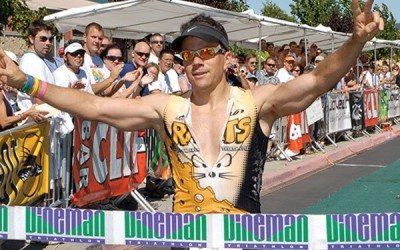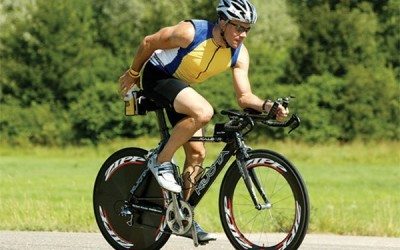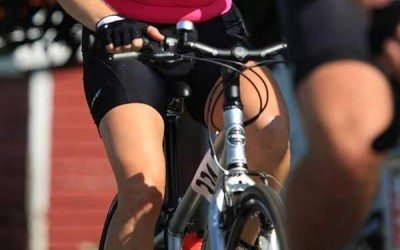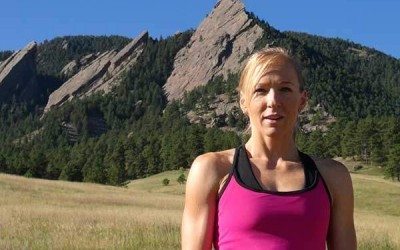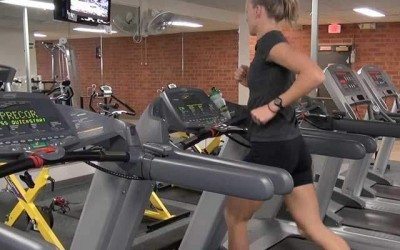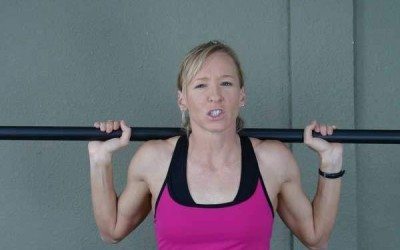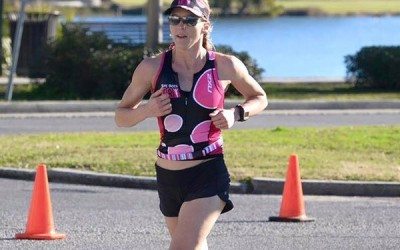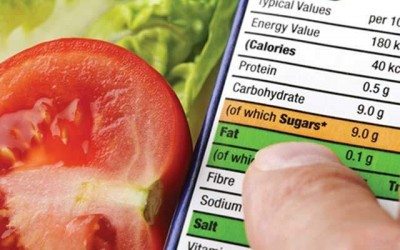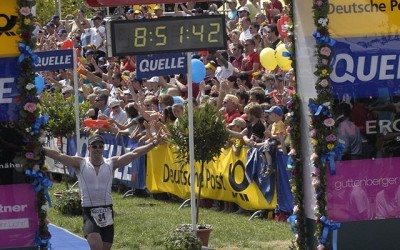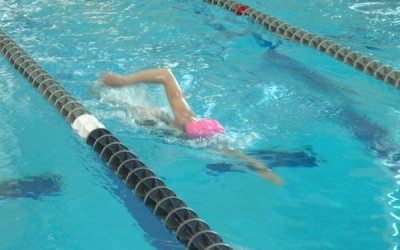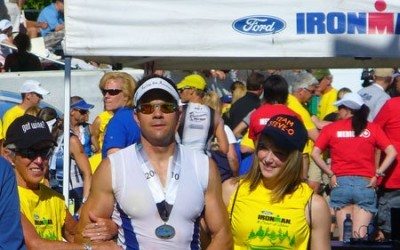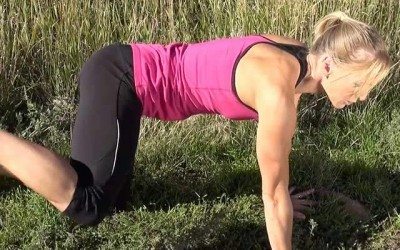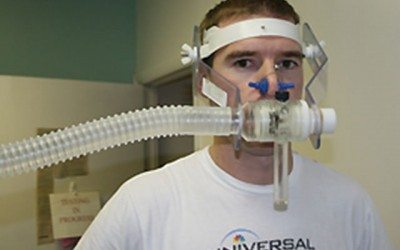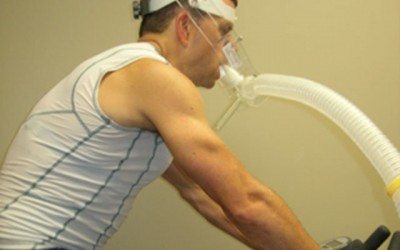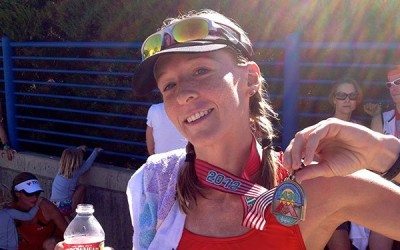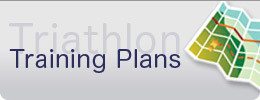ENDURANCEWORKS Triathlon Training and Racing Blog
Welcome to the ENDURANCEWORKS Blog
As service to the sport of triathlon and other endurance sports, we provide our clients and friends with articles that we feel will benefit them in their pursuit of personal excellence in triathlon, other endurance sports and life.
View Recording of “Training for Your First Full or Half Ironman® Distance Triathlon” Webinar
Racing your first full or half Ironman® distance triathlon this year? This presentation is designed to help prepare you for your first full or half IRONMAN® distance triathlon by helping you understand the unique training aspects of long course triathlon and what to...
Should You Do Shorter Triathlons Leading up to a Longer Goal Triathlon?
In this video, David Glover, MSE, MS, CSCS addresses a triathlete's question on whether or not he should do an Olympic distance race before his IRONMAN Triathlon. David also provides guidance on spacing shorter races before a longer goal race.
High Heart Rate Observed During A Treadmill Field Test – What Does It Mean?
David Glover, MSE, MS, CSCS responds to a triathlon client's question about a higher heart rate than expected observed during a field test on a treadmill to set set training zones. David also addresses the question of why it's important to do field tests for both bike...
Tips for What to Eat and Drink During Long Triathlons
In this short video, Krista Schultz, MEd, CSCS answers a triathlete's question about what to eat and drink during a long bike or run workout by providing tips for what to take in during your training sessions and how to determine what you can ingest. Be sure to take...
Can You Ride Your Mountain Bike During a Triathlon?
Yes, you can! David Glover, MS, CSCS discusses the types of bikes you can ride as well as other bike-related considerations and rules like wearing a CPSC-certified helmet that is buckled at all times while on the bike.
How to Improve Your Bike and Run Speed in Half IRONMAN and IRONMAN Triathlons
Krista Schultz, MEd, CSCS shares three basic tips to help you get faster on the bike and run in half distance and IRONMAN triathlons. The three tips are to: Practice your nutrition, Improve your pacing and Incorporate strength training into your training.
School of Tri Classrooms are now at ENDURANCEWORKS!
Do you want to finish a triathlon? Or go faster? Consisting of three different sports - swimming, biking and running - plus transitions, triathlon can be a daunting sport to learn without having someone there to guide you through the learning experience. In working...
What Is Optimal Breathing Frequency During a Triathlon?
A client recently asked, "What is the optimal frequency to breathe during a half Ironman® swim?" The answer is - "It depends," but the key is to practice a variety of breathing patterns in the pool so that you can adjust to whatever situation you may find during your...
Three Cues for Dynamic Stability
In this short video, Coach Krista Schultz, MEd, CSCS shares three cues for dynamic stability. Dynamic stability improves skeletal system alignment to prevent injury plus helps improve speed and efficiency during any activity.
How to Simulate Outdoor Running on a Treadmill
Too cold or wet to run outside for your triathlon or run training? Coach David Glover, MS, CSCS shares tips to help make your treadmill runs more like your outdoor runs starting with setting your treadmill elevation to 1% to account for lack of air resistance indoors.
How Important Is Strength Training for Triathletes? Very. Krista Schultz Explains.
Research has shown that 50% of triathletes will get injured in training each year prior to competition. Krista Schultz, MEd, CSCS discusses the importance of strength training for triathletes to include three key areas to focus on - back, deep abdominals and glutes -...
Krista Schultz’s New Orleans Rock ‘n’ Roll Half Marathon Race Report
My visit to New Orleans last weekend was AWESOME! I stayed with my best friend, Kristin, who took care of me from the moment I arrived. I met Kristin in high school and she has been there for me ever since and is simply the best! The icing on the cake was that I ran...
Three Tips for Setting Successful Goals for Your Next Triathlon
Goals can be very motivating (if set properly). In response to a client's goal to finish an Ironman Triathlon under 11 hours, David Glover, MSE, MS, CSCS three tips for setting successful time goals for triathlons.
What to Do if You Have a Bad Week of Triathlon Training?
Sometimes life (or weather) gets in the way of our triathlon training such that we can't complete all of our swim, bike and run workouts. David Glover, MSE, MS, CSCS shares his perspective on how to cope with bad training weeks and setting realistic expectations for...
Trying to Lose Weight? Try Keeping a Daily Food Log to Track What You Really Eat.
In this short video, Krista Schultz, MEd, CSCS discusses the importance of keeping a food log when trying to lose weight. If you don't log your food, you won't really remember what you ate during the day - awareness is often half the battle.
Goal Setting for Triathletes – Why You Need to Have Goals
“If you don't know where you are going, you will probably end up somewhere else.” — Lawrence J. Peter Training your mind for optimal performance on race day is just as important as training your body. Goal setting is one tool to mentally prepare for race day. This...
Second Guessing Oneself – Does It Help or Hurt? Well, Both Actually.
by David B. Glover, MSE, MS, CSCS “Don’t bother just to be better than your contemporaries or predecessors. Try to be better than yourself.” – William Faulkner I struggle with “second guessing” as do many of my triathlon clients. In everyone of the more than 100...
Learn How to Do a Freestyle Flip Turn in the Pool
Even though triathlon swims are typically open water without a wall to push off of, learning how to do a flip turn will improve your swimming in the pool and ultimately make you faster in the water during your triathlon. Collegiate and Masters Swim Coach Doug Alban,...
Choosing an IRONMAN Triathlon Race – Which One?
Updated on August 3, 2016 “Swim 2.4 miles! Bike 112 miles! Run 26.2 miles! Brag for the rest of your life!” — Commander John Collins, USN (1978) A client asked me recently about choosing which IRONMAN distance race (2.4-mile swim / 112-mile bike / 26.2-mile run) to...
Strengthen Your Glute Muscles with the Fire Hydrant Exercise
Coach Krista Schultz, MEd, CSCS demonstrates the "fire hydrants" exercise - an excellent exercise to develop strength in your glute muscles and firm up your backside.
Understanding VO2 Max Part 2: What Does Your VO2 Max Number Tell You?
What Does Your VO2 Max Number Tell You? Triathlete Jason Devaney visited Krista Schultz, MEd, CSCS to have his VO2 max tested. He learned he has a VO2 max of 55.3 ml/kg/min, which is well above his age predicted value of 44. So what does that number tell him? As...
Understanding VO2 Max Part 1: What Is VO2 Max?
So, What Is VO2 max? I took a graduate level course in Exercise Physiology a few years ago at Eastern Michigan University where we discussed VO2 Max so I thought I would share some of what I learned and hopefully clear up some misconceptions about what VO2 max is and...
Winning the Triathlon Balancing Act with a Weekly Plan
by David B. Glover A huge challenge that most triathletes - and truthfully most people for that matter - have is managing time. There are just too many things to do, too many things to think about and too many commitments to meet in order to do everything:...
Consistency as a Critical Success Factor in Triathlon
In this short video, David Glover, MSE, MS, CSCS discusses the importance of consistency in your triathlon training for success and shares tips help you stay consistent in your training even if you have other competing demands on your time.

